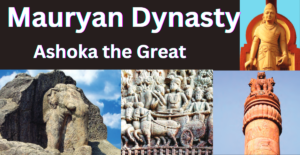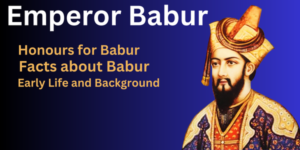Indian National Congress Sessions
Indian National Congress Sessions
History of Indian National Congress:
- Allan Octavian Hume, a former Indian Civil Service officer, founded the organization on December 28, 1885 in Mumbai.
Initially, the INC consisted of educated Indians who were influential in spreading modern ideas. - Dadabhai Naoroji, Dinsha Edulji Wacha, Surendranath Banerjee, Bhadruddin Diabji, Ferozsha Mehta, W.C. Bonnerjee, S.
- Ramaswamy Mudaliar, S. Subramania Iyer and Romesh Sundar Dutt were among the early leaders.
- The INC grew into a formidable political force in the twentieth century, providing a platform for Indians to express their political views and contributing significantly to India’s independence campaign.
- It expanded into the driving force behind India’s freedom struggle, organizing various campaigns and activities against British rule.
- The INC’s influence grew across India, attracting leaders from all regions and communities, and it became a symbol of India’s nationalist aspirations.
List Of Indian National Congress Sessions:
| Session | Place | Date | President |
| 1st Session | Bombay | Dec. 28-30, 1885 | Womesh Chandra Bonnerjee |
| 2nd Session | Calcutta | Dec. 27-30, 1886 | Shri Dadabhai Naoroji |
| 3rd Session | Madras | Dec. 27-30, 1887 | Badruddin Tyabji |
| 6th Session | Calcutta | Dec. 26-30, 1890 | Pherozeshah Mehta |
| 8th Session | Allahabad | Dec. 28-30, 1892 | Womesh Chandra Bonnerjee |
| 11th Session | Pune | Dec. 27-30, 1895 | Surendranath Banerjea |
| 12th Session | Calcutta | Dec. 28-31, 1896 | Rahimatullah M. Sayani |
| 13th Session | Amaravati | Dec. 27-29, 1897 | C. Sankaran Nair |
| 15th Session | Lucknow | Dec. 27-29, 1899 | Romesh Chunder Dutt |
| 17th Session | Calcutta | Dec. 26-28, 1901 | Dinshaw Eduljee Wacha |
| 21st Session | Banaras | Dec. 27-30, 1905 | Gopal Krishna Gokhale |
| 22nd Session | Calcutta | Dec. 26-29, 1906 | Shri Dadabhai Naoroji |
| 23rd Session (Suspended) | Surat | Dec. 26-27, 1907 | Rash Behari Ghosh |
| 24th Session | Lahore | Dec. 27-29, 1909 | Madan Mohan Malaviya |
| 25th Session | Allahabad | Dec. 26-29, 1910 | Sir William Wedderburn |
| 26th Session | Calcutta | Dec. 26-28, 1911 | Bishan Narayan Dar |
| 30th Session | Bombay | Dec. 27-29, 1915 | Satyendra Prasanna Sinha |
| 31st Session | Lucknow | Dec. 26-30, 1916 | Ambica Charan Mazumdar |
| 32nd Session | Calcutta | Dec. 26-29, 1917 | Annie Besant |
| (Special Session) | Bombay | Aug. 29-01, 1918 | Romesh Chunder Dutt |
| 34th Session | Amritsar | Dec. 26-30, 1919 | Motilal Nehru |
| 35th Session | Nagpur | Dec. 26-30, 1920 | C. Vijayaraghavachariar |
| 36th Session | Ahmedabad | Dec. 27-28, 1921 | Hakim Ajmal Khan (Acting President for C.R. Das) |
| 37th Session | Gaya | Dec. 26-31, 1922 | Deshbandhu Chittaranjan Das |
| 40th Session | Kanpur | Apr. 15-17, 1925 | Sarojini Naidu |
| 42nd Session | Madras | Dec. 26-28, 1927 | M.A. Ansari |
| 43rd Session | Calcutta | Dec. 29-01, 1929 | Motilal Nehru |
| 44th Session | Lahore | Apr. 16-18, 1929 | Pt Jawaharlal Nehru |
| 45th Session | Karachi | Mar. 21-31, 1931 | Vallabbhai J. Patel |
| 46th Session | Delhi | April 24, 1932 | Amrit Ranchhorddas Seth |
| 48th Session | Bombay | Oct. 24-28, 1934 | Dr. Rajendra Prasad |
| 50th Session | Faizpur | Jul. 12-14, 1937 | Pt Jawaharlal Nehru |
| 51st Session | Haripura | Feb. 19-21, 1938 | Subhash Chandra Bose |
| 52nd Session | Tripura | Mar. 10-12, 1939 | Subhash Chandra Bose |
| 53rd Session | Ramgarh | Mar. 19-20, 1940 | Maulana Abul Kalam Azad |
| 54th Session | Meerut | Nov. 23-24, 1946 | J.B. Kripalani |
Important Indian National Congress Sessions:
1885 – Bombay Session:
- Formation of the Indian National Congress (INC) with W.C. Bannerjee as President.
- Outlined objectives of the INC.
1886 – Calcutta Session:
- Decision to establish Provincial Congress Committees across India.
- Merger of the National Congress with the National Conference.
1887 – Madras Session:
- Syed Badruddin Tyabji elected as the first Muslim President.
- Appeal to Muslims to join the freedom struggle.
1892 – Session:
- Criticized the Indian Councils Act of 1892 for denying Indians the right to elect their own representatives.
1896 – Calcutta Session:
- Passed a resolution blaming the British for famine in India.
- First singing of the National Song, “Vande Mataram,” at a Congress session.
1906 – Calcutta Session:
- Mention of ‘Swaraj’ for the first time.
- Adopted resolutions on Swaraj, Boycott Movement, Swadeshi, and National Education.
1907 – Surat Session:
- Split into moderates and extremists.
- Adjournment of session due to unrest.
1911 – Calcutta Session:
- Recital of the National Anthem “Jana Gana Mana” for the first time.
1916 – Lucknow Session:
- Unity between moderates and extremists.
- Lucknow Pact signed with the Muslim League for political consensus.
1920 – Nagpur Session:
- Decision to intensify the Non-Cooperation Movement.
- Urged Indian merchants to boycott foreign trade.
1924 – Belgaum Session:
- Only session attended by M.K. Gandhi.
1925 – Kanpur Session:
- Sarojini Naidu became the first Indian woman President.
1927 – Madras Session:
- Decision to boycott the Simon Commission.
- Adoption of complete national independence as the goal.
1929 – Lahore Session:
- Resolution for Poorna Swaraj passed.
- Authorization for the Civil Disobedience Movement.
1931 – Karachi Session:
- Resolution on Fundamental Rights and National Economic Programme passed.
- Endorsement of the Gandhi-Irwin Pact.
1936 – Lucknow Session:
- Push towards socialist ideas by Jawaharlal Nehru.
1938 – Haripura Session:
- National Planning Committee set up under Jawaharlal Nehru.
1940 – Ramgarh Session:
- Decision to launch the Civil Disobedience Movement.
- Formation of the Forward Bloc by Subhas Chandra Bose.
1946 – Meerut Session:
- Last session before independence with J.B. Kripalani as President.



